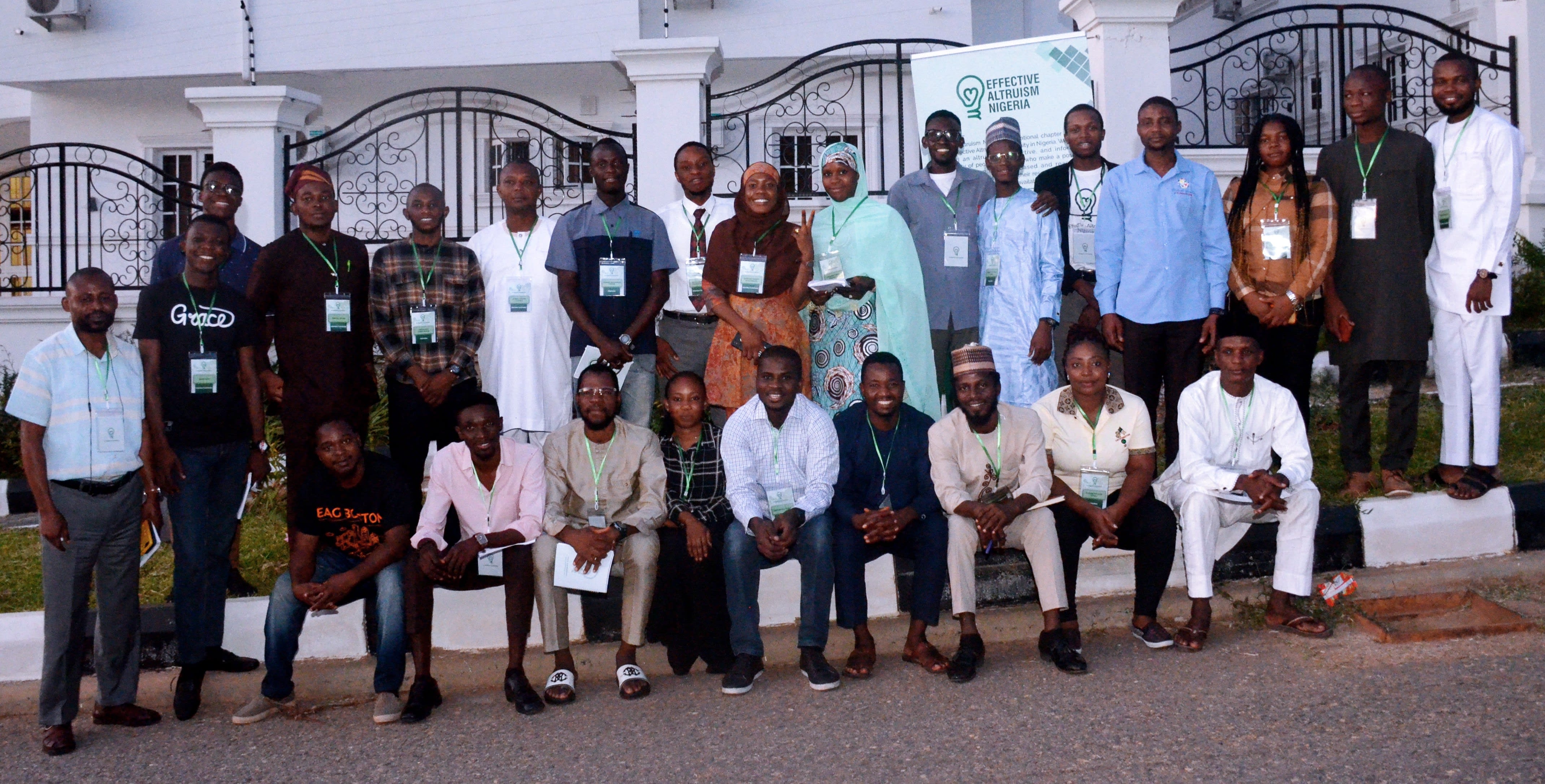
Summary
EA Nigeria works to create an altruistic, supportive, and informed community of people in Nigeria who use evidence-based and reasoned approaches to distribute their resources, be it career, money, or other resources, to maximize their positive impact. EA Nigeria shares impactful resources and facilitates networking, knowledge sharing, skill building, and collaboration among its community.
In 2023, we:
- Conducted three rounds of an introductory fellowship program, graduating 28 participants.
- Conducted four rounds of skill-building workshops with an active participation of 24 members.
- Organized an annual community retreat, fostering engagement with 28 enthusiastic participants.
- Published a monthly newsletter for nine consecutive months, gaining momentum with 482 subscribers by December 2023.
- Facilitated five community insight calls, promoting knowledge sharing and drawing a total attendance of 52 individuals.
- Delivered sixteen personalized guidance and networking connections, enhancing the impact of our support initiatives.
- Updated the opportunity board from June to December 2023 with 120 accessible opportunities to our community in Nigeria.
In 2024, Our key strategies are:
- Improving the infrastructure and capacity
- Conduct rounds of skilling workshops.
- Conduct rounds of the EA intro program.
- Explore the accelerator program.
- Enhancement of engagement and retention
- Facilitating knowledge-sharing calls and continuous personalized guidance.
- Updating opportunity board weekly and a bi-monthly newsletter.
- Conduct annual community retreat.
- Offering continuous support to local groups and student clubs.
- Outreach and professional growth
- Recruiting additional members through fellowships, events, and outreach.
- Set up a donation page and explore fundraising for the aligned charity locally
- Explore fiscal sponsorship for aligned projects and individuals.
About EA Nigeria: Vision, Mission, and Strategy
Founded in 2020, EA Nigeria is a national chapter of the global Effective Altruism community in Nigeria, officially incorporated as the "Impactful Altruism Initiative" by the Corporate Affairs Commission of Nigeria in 2023. Our vision is a cultural setting where resources are distributed effectively for maximum impact, with the mission of building an altruistic, supportive, and informed community.
Our current strategy are:
- Improving infrastructure, structure, and capacity.
- Enhancing community engagement and retention.
- Outreach and professional growth
Activities for Infrastructure and Capacity enhancement include:
- Education and skilling program: This involves single or multi-day workshops designed to enhance both capacity and ability. These workshops cover a spectrum of essential areas, such as career planning, high-impact research, and other relevant skill-building focuses.
- Introductory fellowship program: Crafted to deepen understanding of the core ideas and principles of effective altruism among participants.
- Mentorship and networking pairing: Forging networking and collaboration to empower individuals within the community for knowledge exchange, action, etc.
Activities for Amplifying Community Engagement and Retention
- Opportunity Board Updates: A dynamic opportunity board updated weekly, presenting relevant and accessible opportunities for our members.
- Community Insight Calls: Providing a discussion platform for members to exchange knowledge, socialize, and deepen their engagement with other community members.
- Retreat Event: Organize to increase community engagement and impactful value-aligned practice through knowledge exchange and networking for improved awareness and informed decisions.
- Guidance and Information: Delivering guidance and information through various channels, including personalized 1-1 meetings, newsletters, and web pages, ensuring a comprehensive approach to community support and information dissemination.
Activities for outreach and professional growth
- Online Presence: Amplifying our reach, engagement, visibility, and accessibility.
- Outreach: Multi-faceted through our events and programs, campus ambassadors, targeted online campaign, and existing network.
- Promoting locally aligned charity fundraising efforts (Exploration phase).
- Fiscal sponsorship for project and individual (Exploration phase).
Our theory of change outlines the high-level steps that will enable our activities to have a significant impact.
We categorized the outcomes of our diverse activities into two key dimensions, as outlined in our theory of change, utilizing metrics to assess their impact: Resource Maximization (careers, projects, and effective giving) and Community Growth and Inclination.
Resource Maximization:
- # of the community members pursuing impactful careers.
- # of the community members pursuing an impactful project
- # of the community members pursuing effective giving
Community Growth and Inclination:
- Increase in membership.
- Participation rates in community activities.
2023 Activities and Context
- Intro fellowship program: We conducted three rounds of the introductory fellowship program. The first cohort ran from January to March, the second from May to July, and the third and final cohort from September to November. Each cohort spanned eight weeks, following a weekly syllabus: Week 1: The Effectiveness Mindset; Week 2: Differences in Impact; Week 3: Radical Empathy; Week 4: Global Health & Development; Week 5: Our Final Century; Week 6: What Could the Future Hold? And why care; Week 7: Improving Institutional Decision Making; Week 8: Effective Altruism in Action - Putting Into Practice. In total, 28 participants graduated from the program. The primary objective of the program was to guide interested participants and recruited individuals to think of how they can have a positive impact on the world.
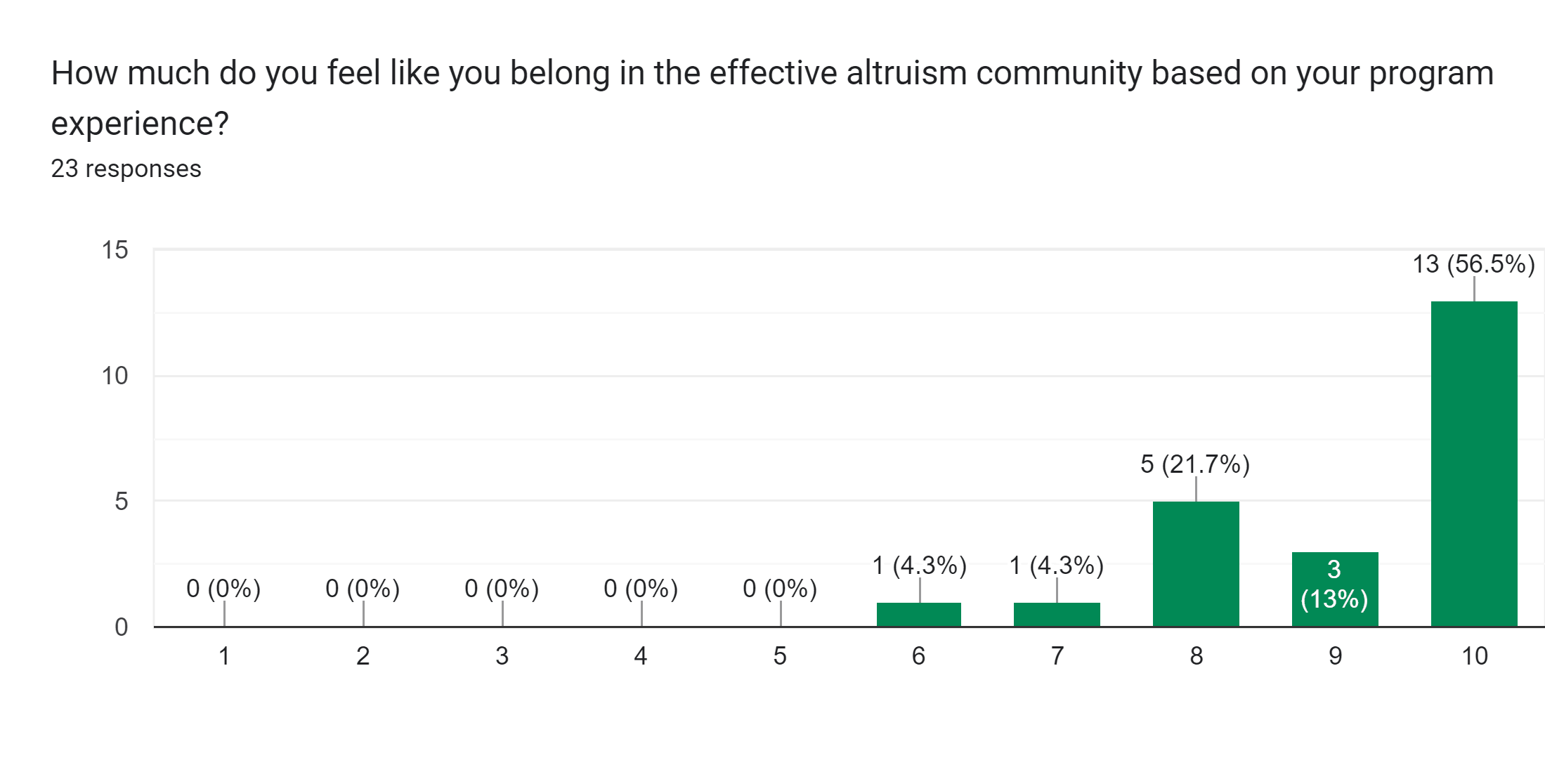
- Skill-building workshop: We organize skills-building workshops to empower participants and enhance their capacity for a more positive impact. These participant-driven sessions facilitate knowledge exchange. In 2023, we conducted four workshops with distinct focuses: the February and April workshops centered on the principles of Effective Altruism, the July workshop on impactful research, and the September workshop on career planning. Each workshop is tailored to benefit its participants.
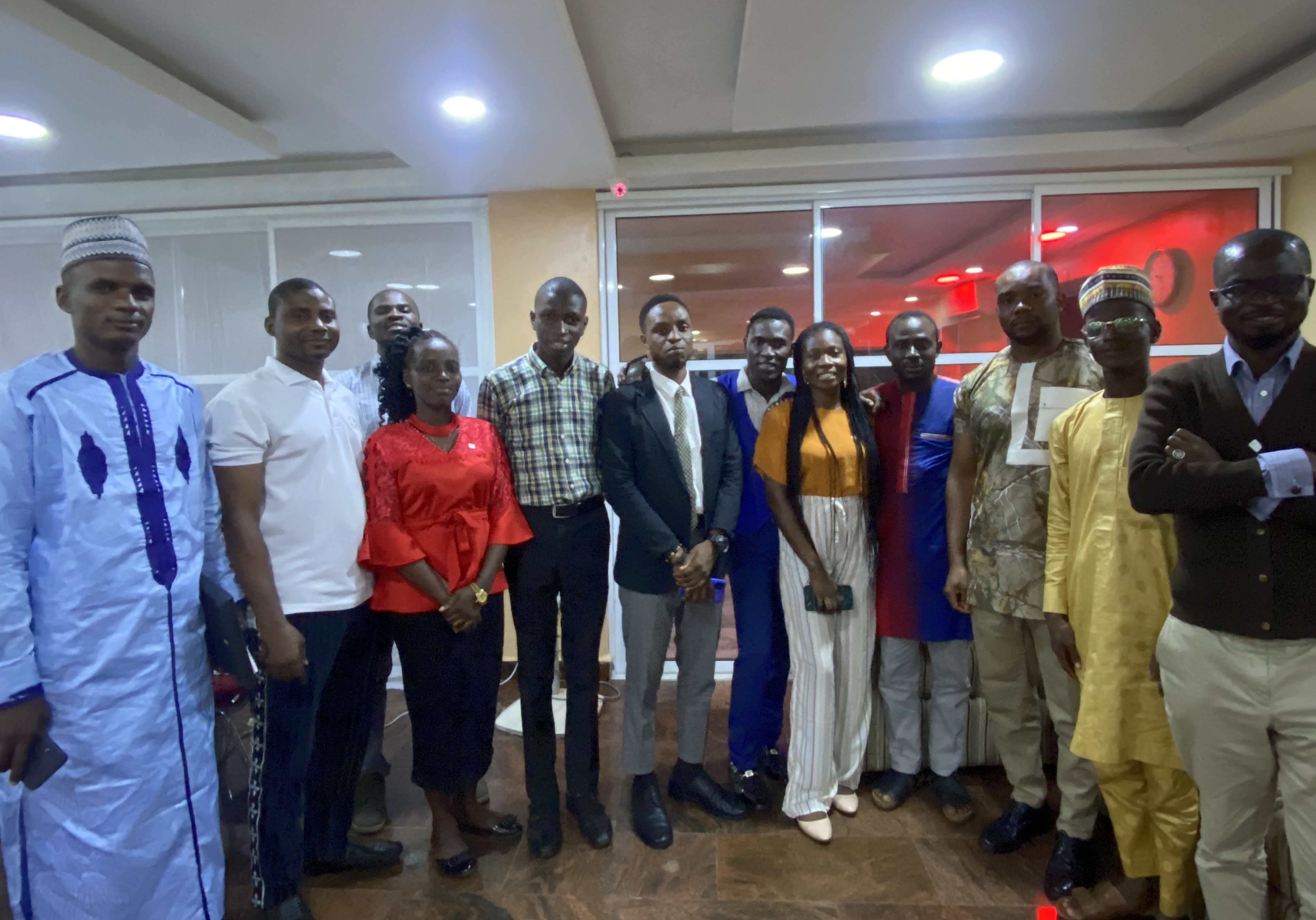
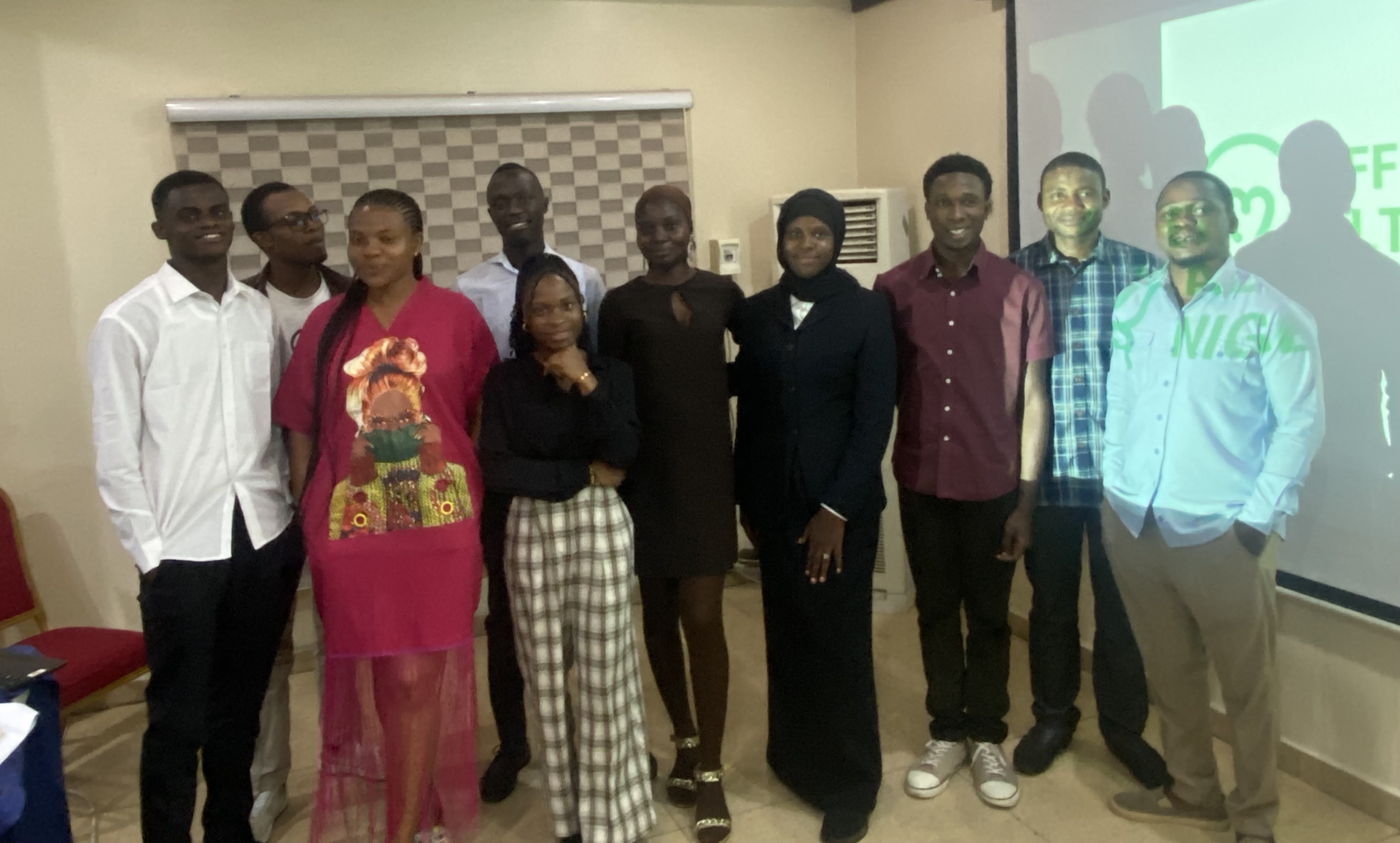
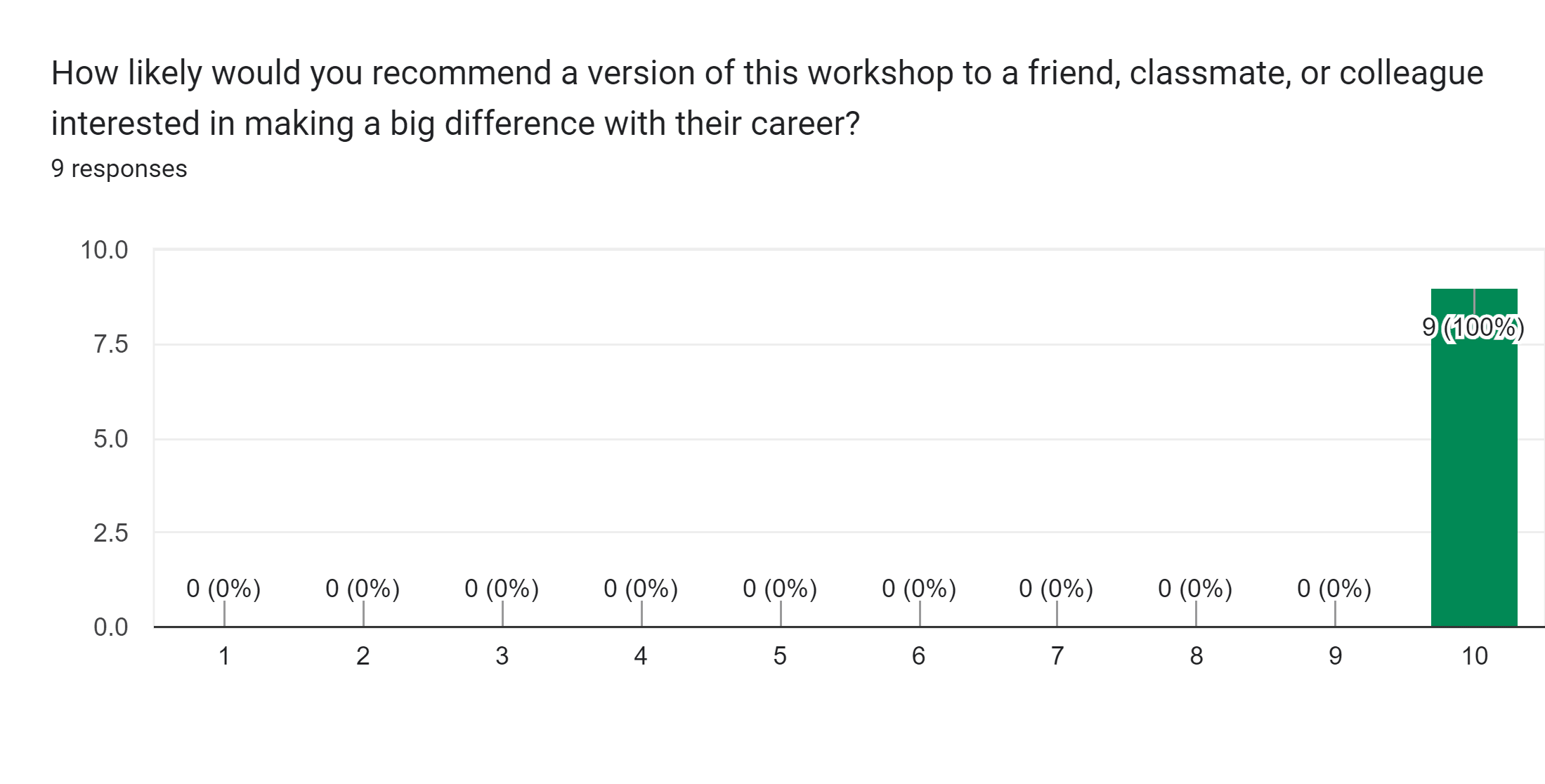
- Retreat: In 2023, our retreat occurred at the scenic hills of Guzape, hosting 28 community members. Participants, including professionals, students, and recent graduates, engaged in various activities to enhance their engagement and foster impactful, value-aligned practices. The retreat facilitated knowledge exchange, learning, and networking among the attendees.
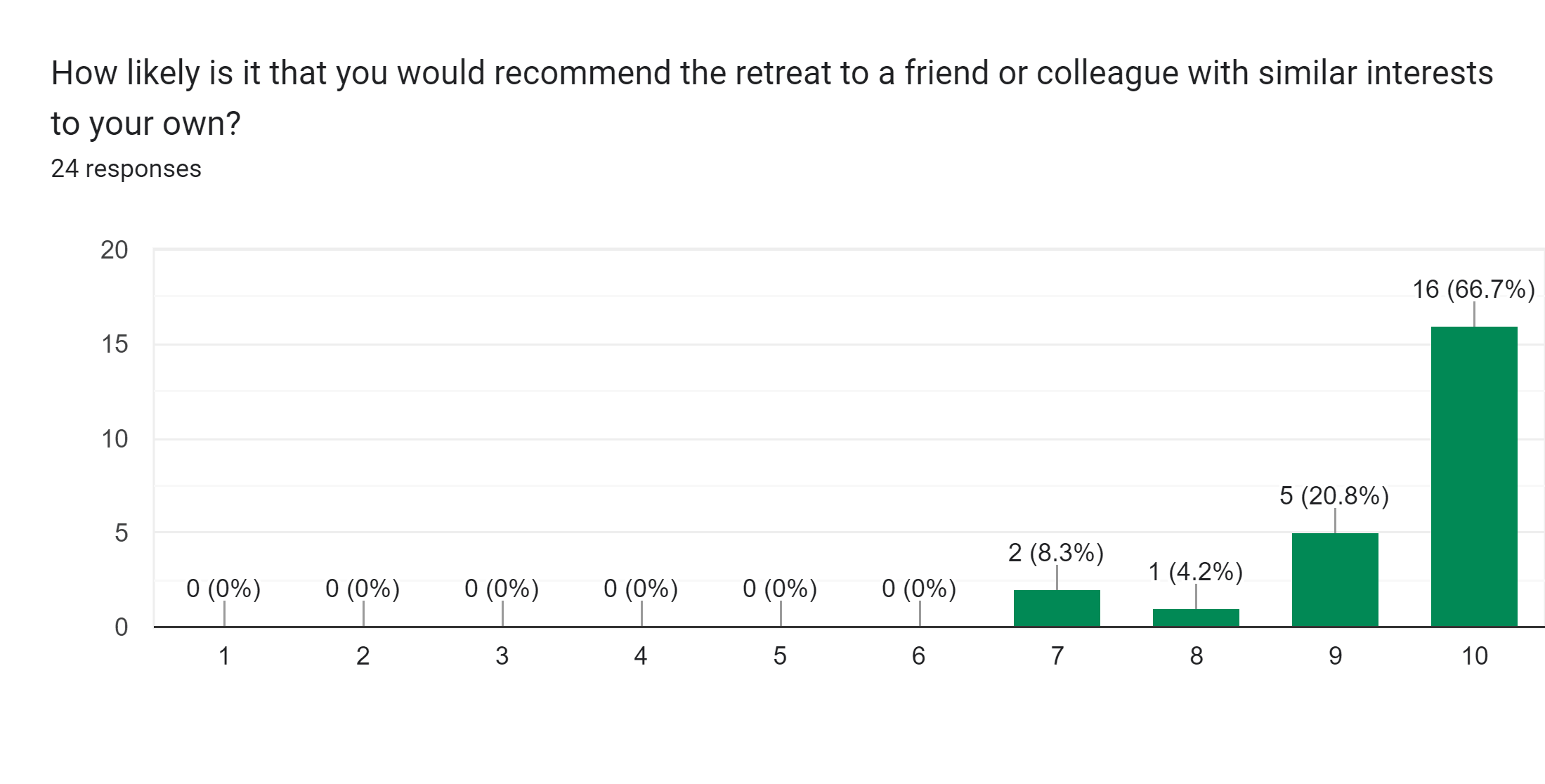
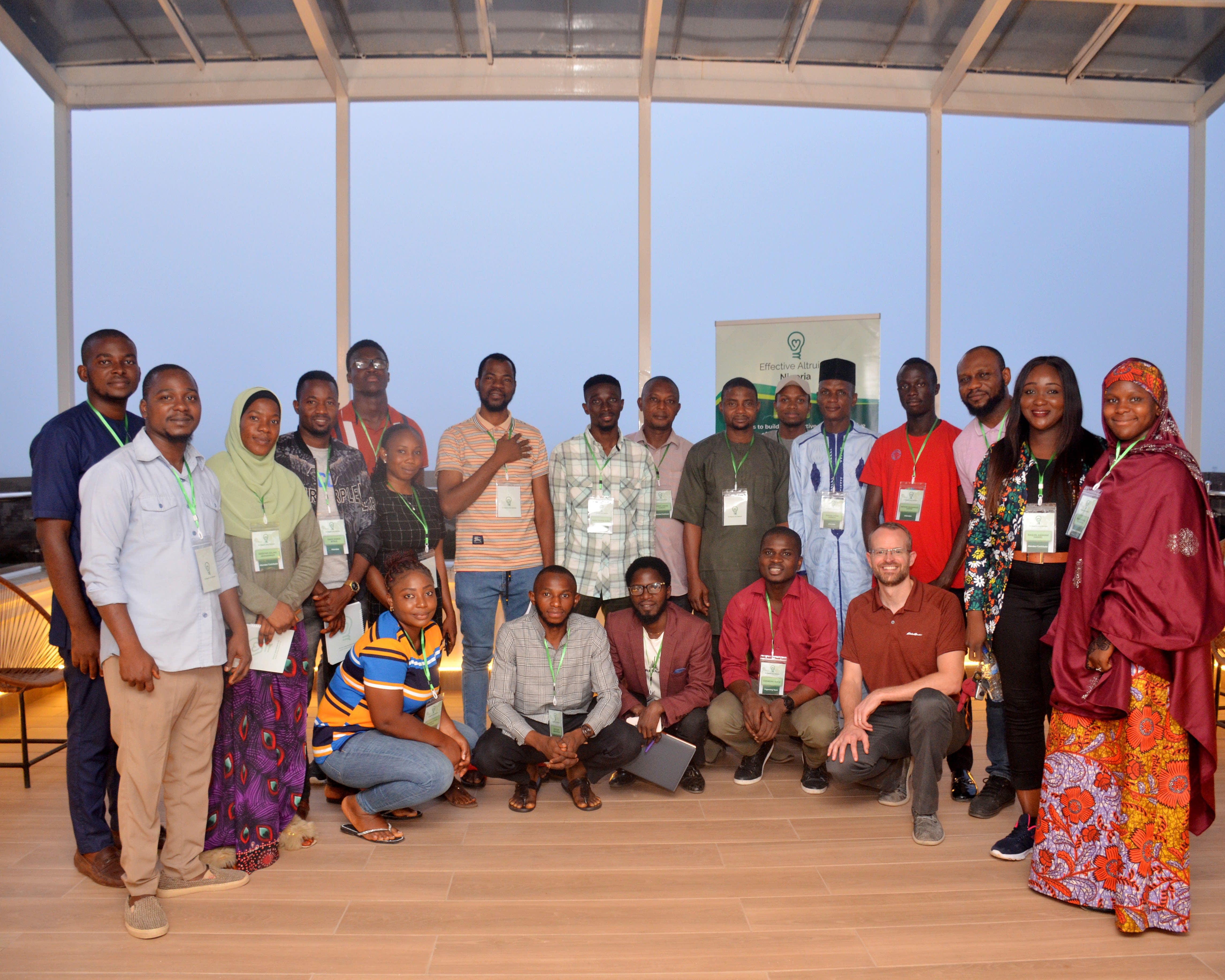
- Community insight calls: The Insight Calls aim to enhance understanding of relevant topics and facilitate networking among members. The objective is to increase awareness, collaboration, and informed decision-making within the community. In 2023, we conducted five versions of these calls, featuring discussions on topics such as " The Cost of Rejection" and "The availability bias in job hunting."
- Newsletter: Our newsletter gives updates on past and upcoming events/plans of EA Nigeria. It also provides information related to the broader EA community, including details about upcoming conferences, forum posts, and various opportunities for our members.
- Opportunity updates: We initiated the opportunity board in late June 2023, consistently compiling and updating it weekly with accessible opportunities for members. These opportunities were mainly sourced from requests we received via email, the 80,000 hours opportunity board, the EA opportunity board, and other relevant sources. From June to December, our updates feature 120 unique, accessible opportunities.
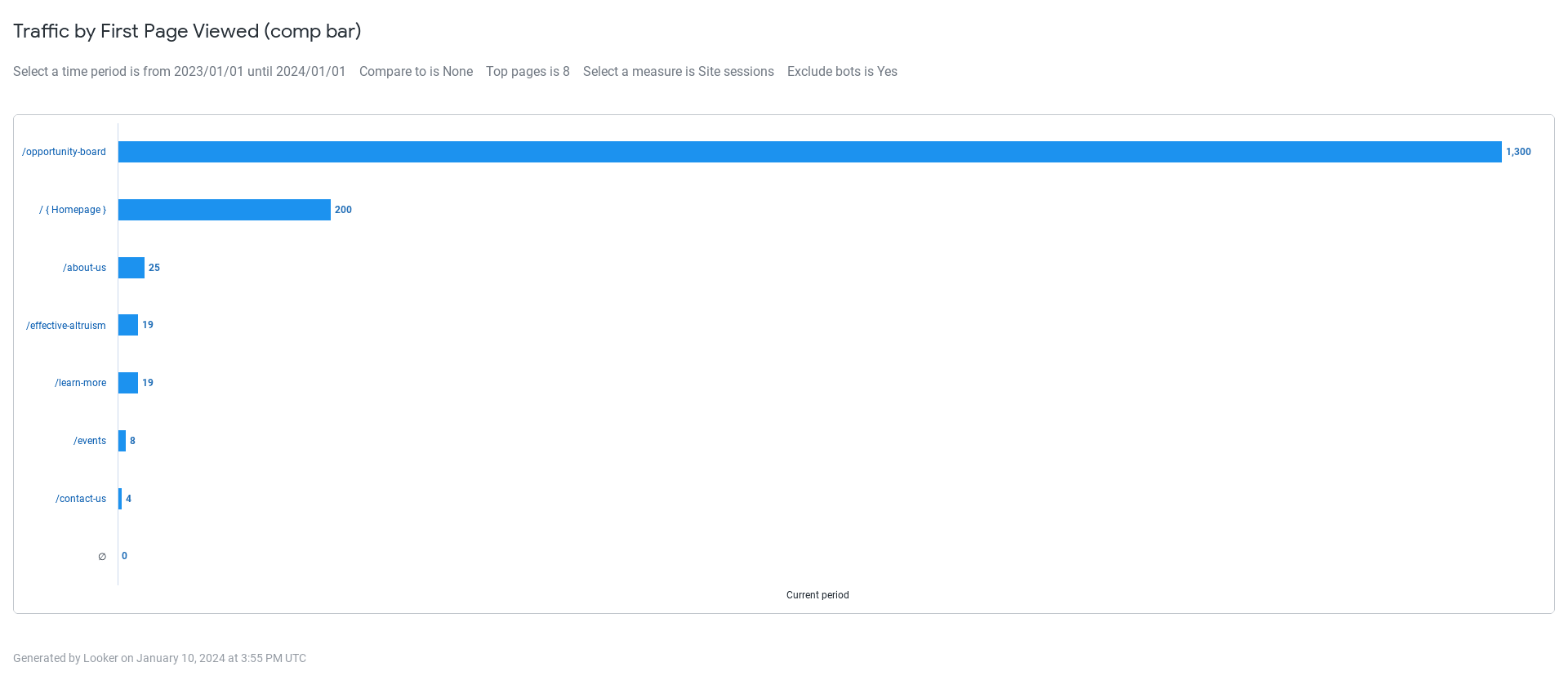
- Guidance and Consultation: We maintain an open rolling form for members seeking personalized guidance or consultations. Based on the request, if we determine that we can offer assistance, we either follow up directly or provide a referral, directing the requesting member to individuals or resources most suitable for their needs. In 2023, we provided this personalized support sixteen times.
While we defer detailed tracking of resource maximization outcomes to CEA's mid-2023 members survey results, we diligently collect feedback on our events. Outcomes include successfully onboarding 42 new members meeting our criteria into our community. Our engagement rates soared, attracting 95 applicants to our annual retreats, 78 to introductory fellowship rounds, and 100 expressing interest in our July and September workshops. From June to December 2023, web analytics revealed our site engagement, with 1,575 site session visitors, 627 unique visitors, and 2,598 page views. Our Facebook page achieved a click-through rate of 1,779, with a follower growth rate of 49.3%. Similarly, our LinkedIn page boasted a click-through rate of 31.83% and a growth rate of 30.7%. Additionally, our retreat facilitated 75 valuable networking, knowledge-sharing, and collaboration pairings.
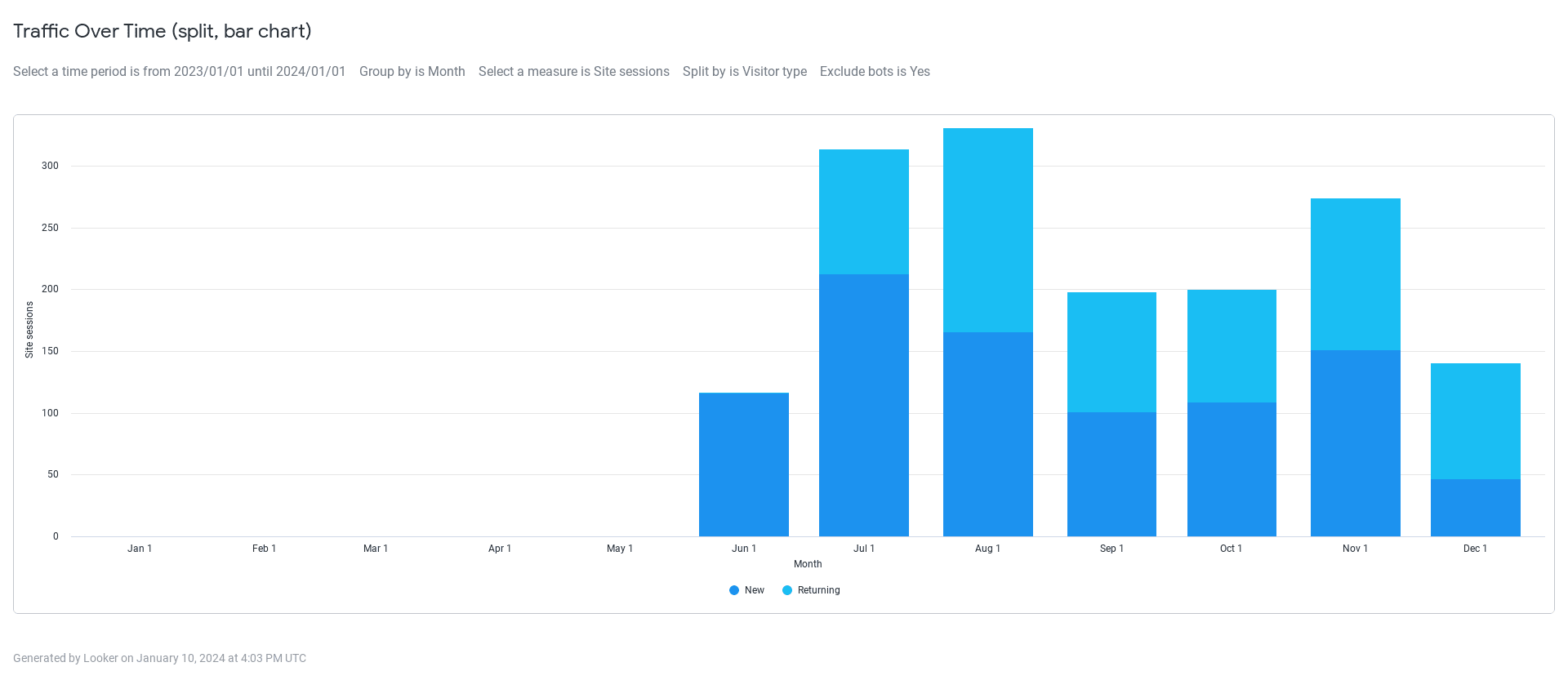
Overcoming Challenges in 2023
In the year 2023, we faced challenges in fostering student groups. While we successfully facilitated the completion of two rounds of six-week book clubs at Bayero University Kano, we faced difficulties in our other targeted universities. At the University of Nigeria, Nsukka, we could only recruit four students, of which 2 completed the intro-fellowship program. At the same time, the remaining two attended our in-person event and continued to engage. We also carry out another in-person outreach at the Nile University in Abuja, but we have not attracted promising students from the campus. In each case, we observe a lack of motivation among students in educational extracurricular activities. At our current stance on the context, we think that the formation of such student groups should occur naturally to generate genuine interest. Nevertheless, as we progress, our strategy involves persistently engaging individual students through targeted online outreach and leveraging our existing network.
Our Plan for 2024:
Looking ahead, our vision for 2024 is on improving the infrastructure, and capacity, enhancing engagement and retention, fostering outreach and professional growth. Key focus areas include skill building and knowledge advancement, community engagement, support provision for members, and aligned effort, with a commitment to tailoring our initiative for optimal outcomes and greater impact. Our goals include:
- Community Growth: Recruiting additional members through fellowship programs, online and in-person events, outreach, targeting students, young professionals, and mid-level career professionals. Aiming to recruit 30+ members in 2024.
- Skilling Workshops: Conduct four skilling workshops with 25 participants or more. Tailoring each workshop to address the specific needs of participants who would benefit the most.
- Ongoing Community Support: Providing continuous support, including mentorship networking, support to local groups and community members through 1-1 and career consultations, and updating the opportunity board weekly, as well as regular newsletters.
- Annual Community Retreat: Hosting an annual community retreat with 25 members.
- Exploratory Project: Considering and will explore the possibility of the following project in 2024:
- Fundraising for local effective charities: This entails leveraging our current network and social platforms. While we haven't finalized a singular delivery method, our approach includes establishing a webpage on our site featuring the supported charities, utilizing marketing materials on social platforms, and potentially engaging in physical efforts when opportunities arise. At this stage, we do not anticipate conducting research to evaluate the charities we will promote; instead, we will rely on recommendations from organizations such as GiveWell.
- Accelerator Program: An extended, multi-week program with a strong deliverable, potentially a robust version of our skilling workshops.
- Fiscal sponsorship: Sponsoring locally aligned projects and grantees, eliminating registration and government process hurdles, etc.
Operational updates
EA Nigeria operates as a non-profit organization in Nigeria and serves as a national chapter of the Effective Altruism community in Nigeria. Its primary financial support comes from the Centre for Effective Altruism- Group support and EA Infrastructure Funds.
Our teams consist of volunteers and paid part-time members funded through the EA Infrastructure Fund, and our time allocation grew to 0.75 Full-Time Equivalent (FTE) in September 2023. We expect to expand our team time capacity in 2024 with anticipated increased programming. Additionally, we intend to establish a donation page on our website, providing interested individuals with a direct avenue for contributing to our initiatives.
Connect With Us:
To remain informed about our activities and programming, subscribe to our newsletter and/or follow us on social media platforms such as Facebook and LinkedIn.
If you have feedback or identify flaws in our thinking and reasoning, please don't hesitate to reach out or leave a comment.

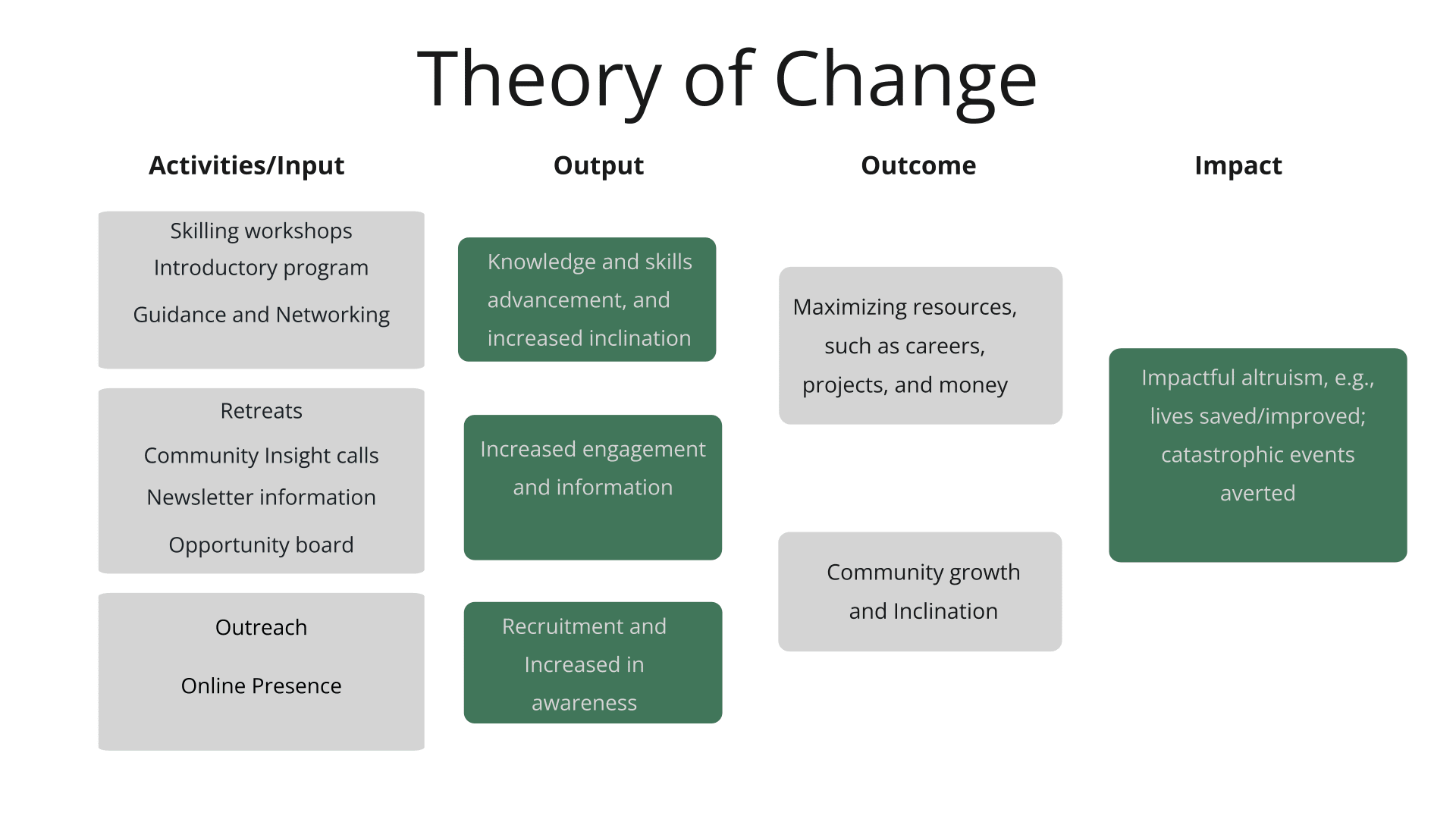



Kudos to EA Nigeria management I will say they are the best on the African continent